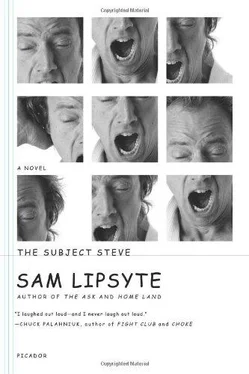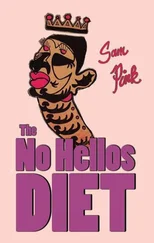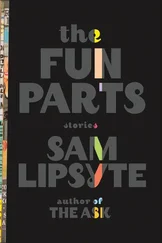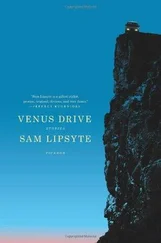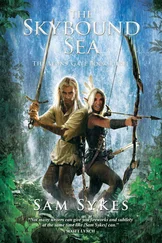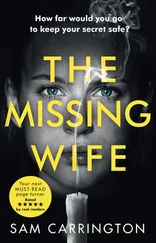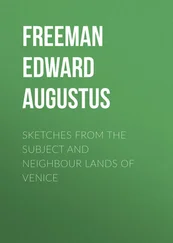"There was a negligible amount of ass play, too," he said.
The truth was I knew all about it, but I let Cudahy confess and I forgave him. Forgiveness, like sin, is maybe just a matter of dwindling alternatives. Hell, it was only an ear, some ass, and Cudahy was no William, either.
We ended the evening of his confession in a bear hug under boulevard lights. Maybe we were both thinking of our fathers there in our boozy embrace.
This last we didn't discuss.
I cried for the both of us now, big vodka weeps. I draped myself in Cudahy's track suit, those Valhallan warm-up duds, fell asleep while a bearded coot on the tube paid out a mine shaft fuse.
"This'll fix 'em," the coot cackled.
I dreamed I was the dialogue coach at the mine shaft location.
"No, really cackle it," I instructed the coot.
Later I dreamed my body had become a kind of cavern, too. Gypsy moths fluttered by the hundreds in my obsidian belly, drove clouds of wing dust up my stone throat.
Cudahy's dream likeness walked across the black pools and guano mounds of me. He had a gold Zippo, a can of my mother's HairNet spray. Wild gouts of fire rippled from his hands.
"Relax," said Cudahy. "You're a goner."
I woke up and reached for a water glass. The coaster beneath it unfolded, effloresced, a time-lapse flower.
Do you number among the Infortunate?
Did I number?
I numbered.
I dialed right down.
The driver of the van said his name was Old Gold. He was a hairy kid with big crooked hands. Stuck on, those hands looked, maybe just for our drive. The van appeared to be a patch job, too. Mismatched doors, a yard-sale grille, a gummy coat of grayish paint. Bucket seats were bolted down where a banquette must have been. There wasn't much else. Stacks of blankets, some clementine crates. The floor was rotted through in places. You could look between your shoes, see bits of road.
"Thanks for the ride," I said.
Old Gold said nothing, aimed us toward the tunnel mouth. These ancient gullets under the river tended to unnerve me. Too much speed for a burrow-lover. No warm dirt. I longed for the peace of an upward grade, us spit back to surface air, countryside, the towns. The van bucked through the greasy-tiled tube. Sandhogs, those were the men who built these things. I'd seen shows on the history station. Some got buried under bad walls with their bologna sandwiches. Progress, the crime. Progress, the cable premiere.
"Think she'll hold up?" I said.
"Who's that?"
"This baby," I said, patted the steering column.
"No touch," said Old Gold. "No touches."
"Sorry," I said.
We eased up into daylight and I noticed thin starbursts of scarring along his eyebrow, the near hinge of his jaw.
"Are you a boxer?" I said.
"When I was a kid," said Old Gold, "my father nailed an oak board up on the kitchen door. We had to hit it ninety-eight times with each hand before supper."
"Ninety-eight?"
"A hundred, I think the lesson would have been lost on us."
"I think I understand."
"I fought Clellon Beach once."
"Never heard of him."
"You were never in the Navy."
"That's true," I said.
"I knew it was true when I said it," said Old Gold. "I don't need your affirmation. I've been mothered by fire."
"What?"
"Nothing," said Old Gold.
We drove north in new silence. Factories into farmland into forests, forest towns. We made a pit stop near a place called Mapesburg. Old Gold bought gasoline and a twin-pack of cupcakes, laboratory pink.
"You're not a veganite, are you?" he said.
"A what?"
"Because these, I believe, originate in Alabama. You know, hydrogenated."
"These are fine," I said.
"Oh," said Old Gold. "You're one of those."
"One of what?"
"Fine, fine. Everything's fine, dear. No, trust me, I'm fine."
"I have no idea what you're talking about."
"So, you're an I-have-no-idea guy, too. Not an uncommon combo, come to think of it."
"Hey," I said. "Cut it out. This is crazy."
"You want to know what's crazy?" said Old Gold. "Climbing into the ring with Clellon Beach. That's fucking crazy."
He threw the van into gear, gunned into good, easy speed. I felt strangely calm. I'd always been a gifted passenger. Bliss in my boyhood had been the backseat, that foliate blur, the folds of my father's neck, the way my mother, our "navigator," twisted around with her maps and her snack mix, lowered each sodium-enhanced doodad into my hand with the gravity of ancient rite.
Our family had a tradition of bleak getaways. We were always lighting out for some cold rocky coast. My father would walk out on a seawall, stand there with his arms crossed in what I took to be the existential defiance of certain dust jacket photographs. He worked for a home appliance company, wrote and edited operating manuals for juicers and drills and electric ranges, so a more gloried relation to the word might have been on his mind. Or maybe he was mulling a plunge, icy respite from life's dips and dives. Eventually he'd amble-even haunted he was one of the few legitimate amblers I've ever known-back to where my mother and I shivered on a tartan blanket, her conjuring the tidal chop in charcoal on a window-sized sketch pad.
"All my pretty ones," my father would say. "Fuckeroo'd."
I'd laugh. It was a funny word.
"Fuckeroo'd," he'd say again, and it wasn't that funny anymore.
Maybe the man had a feeling for the coming whammies. Like my mother falling in love with his cousin Manny, a guy who tended to brag about his Caddie's "nigger-locks," and her moving out to Arizona to help him run a profitable vanity press, lending her editorial hand to such titles as Tao Jones: A Poem Cycle and Favorite Recipes from the Mossad .
It wasn't just that she'd ditched him for his kin, either. Worse for my father, I think, whose mightiest praise was contained in the word "pro"-"You know, that paperboy, the Mickelson kid, he's a real pro"-she and Manny were now at the service of the amateurs, the no-talent fatheads with money to burn.
"Manny's never even read a fucking book," said my father. "Now he makes them."
"Hey," I said, home from school for the weekend, "the Wright Brothers never flew until they built a plane."
"Your flip college-boy remarks aren't helping," said my father. "I'm in a lake of fire here."
Still, my mother was my mother. I couldn't just forget all the hugs, the kisses, the granola and caramels. I took no sides over the years, or, rather, took both sides for whatever gain there was for a grown man. A few times I flew out to Phoenix with Fiona and we'd all sip fresh lemonade by the swimming pool.
"Your father hates me," my mother said once. "It's eating him up, I can tell. It's terrible. He needs to move on. Honey, if Maryse ever leaves you, remember to move on. Don't let it eat you up."
"I'll take care of him, Grandma," said Fiona.
"Do you people know something I don't?" I said.
"Hypothetical," said my mother.
"Just a scenario," said Fiona.
This mother and daughter were like sisters sometimes, doting on each other, turning on each other, teaming up. It was quite a thing to see. When that desert sun got in my mother's eyes and she did a head-on with an oil truck, I saw a lot of the light go out of Fiona. Some people get the lesson a little too early.
We flew out for the service, sat by the pool one last time, drank lemonade from a powder mix. Manny had locked himself in his Cadillac. He was hidden, mostly, but we heard his sobs, saw his boat shoes poke up past the dash.
"So, that's it?" said Fiona. "The whole thing's just a pile of random bullshit?"
"Some people," I said, "believe there's a purpose to it all."
"What, you mean like Heaven?"
"Some people," I said.
Читать дальше
